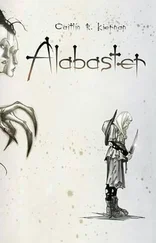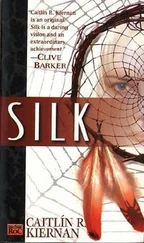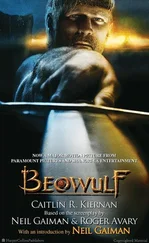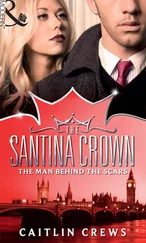Caitlin R. Kiernan - The Red Tree
Здесь есть возможность читать онлайн «Caitlin R. Kiernan - The Red Tree» весь текст электронной книги совершенно бесплатно (целиком полную версию без сокращений). В некоторых случаях можно слушать аудио, скачать через торрент в формате fb2 и присутствует краткое содержание. Жанр: Ужасы и Мистика, на английском языке. Описание произведения, (предисловие) а так же отзывы посетителей доступны на портале библиотеки ЛибКат.
- Название:The Red Tree
- Автор:
- Жанр:
- Год:неизвестен
- ISBN:нет данных
- Рейтинг книги:3 / 5. Голосов: 1
-
Избранное:Добавить в избранное
- Отзывы:
-
Ваша оценка:
- 60
- 1
- 2
- 3
- 4
- 5
The Red Tree: краткое содержание, описание и аннотация
Предлагаем к чтению аннотацию, описание, краткое содержание или предисловие (зависит от того, что написал сам автор книги «The Red Tree»). Если вы не нашли необходимую информацию о книге — напишите в комментариях, мы постараемся отыскать её.
The Red Tree — читать онлайн бесплатно полную книгу (весь текст) целиком
Ниже представлен текст книги, разбитый по страницам. Система сохранения места последней прочитанной страницы, позволяет с удобством читать онлайн бесплатно книгу «The Red Tree», без необходимости каждый раз заново искать на чём Вы остановились. Поставьте закладку, и сможете в любой момент перейти на страницу, на которой закончили чтение.
Интервал:
Закладка:
So, I got in the car and drove up the road to the Tyler library in Moosup. I’m not sure what effect my retreat might have had on Constance. Did she see it as a victory, having chased me from the house? Or, if her objective was to bedevil me, did I rob her of the satisfaction? I don’t care, not really. I’m only thinking out loud. I realize that, either way, the trip to the library merely delayed some inevitable confrontation. If she’s spoiling for a showdown, I cannot hope to avoid it indefinitely. Sooner or later, tomorrow or the next day, I’ll find the proverbial end of my proverbial short fuse and tell her to lay the hell off or die. Jesus, how many times have I, directly or indirectly, threatened the bitch’s life in this entry? When they find her rotting corpse in the basement, this will be the document that sends me to the chair. Or to the room where the lethal injections are administered. Does Rhode Island have the death penalty? I should hope so. I’d hate to actually serve a life sentence for the death of Constance Hopkins.
Really, Judge. Honest injun. The noisy little clit-tease had it coming.
So, yeah. The library. The woman at the front desk commented that she hadn’t seen me in a while and wanted to know if maybe I’d been working on a new book. Out of the frying pan and into the fire, right? I said something inoffensive, I can’t recall what, found an anthology of New England writing (essays, scary Puritan sermons, short stories, etc.) and did my best to hide among the shelves. At least the place is air-conditioned, so it was an escape from the heat, which shows no signs of letting up, regardless of what the weathermen are telling us. I found a reasonably comfortable armchair, and proceeded to read an excerpt from Thoreau’s The Maine Woods (1864). I’ve never read much Thoreau, beyond Walden, of course, which I think I “had” to read for some college lit class or another. Anyway, this excerpt from The Maine Woods sort of sucked me in, and I sat there for more than an hour, reading. At one point, I got up and photocopied a page, to get a passage that had struck a chord. I think I’m going to include part of it here, though I’d not planned to do so when I sat down and started typing. Reading the following lines by Thoreau, I could not help but see them in light of Dr. Harvey’s manuscript and the red tree:
Nature was here something savage and awful, though beautiful. I looked with awe at the ground I trod on, to see what the Powers had made there, the form and fashion and material of their work. This was that Earth of which we have heard, made out of Chaos and Old Night. Here was no man’s garden, but the unhandselled globe. It was not lawn, nor pasture, nor mead, nor woodland, nor lea, nor arable, nor waste-land. It was the fresh and natural surface of the planet Earth, as it was made for ever and ever, — to be the dwelling of man, we say, — so Nature made it, and man may use it if he can. Man was not to be associated with it. It was Matter, vast, terrific, — not his Mother Earth that we have heard of, not for him to tread on, or be buried in, — no, it were being too familiar even to let his bones lie there, — the home, this, of Necessity and Fate. There was there felt the presence of a force not bound to be kind to man. It was a place for heathenism and superstitious rites, — to be inhabited by men nearer of kin to the rocks and to wild animals than we. We walked over it with a certain awe, stopping, from time to time, to pick the blueberries which grew there, and had a smart and spicy taste. Perchance where our wild pines stand, and leaves lie on their forest floor, in Concord, there were once reapers, and husband-men planted grain; but here not even the surface had been scarred by man, but it was a specimen of what God saw fit to make this world. What is it to be admitted to a museum, to see a myriad of particular things, compared with being shown some star’s surface, some hard matter in its home! I stand in awe of my body, this matter to which I am bound has become so strange to me. I fear not spirits, ghosts, of which I am one, — that my body might, — but I fear bodies, I tremble to meet them. What is this Titan that has possession of me? Talk of mysteries! — Think of our life in nature, — daily to be shown matter, to come in contact with it, — rocks, trees, wind on our cheeks! The solid earth! the actual world! the common sense! Contact! Contact! Who are we? where are we?
Is this a fraction of the tree’s apparent mystery, that it exists, essentially, out of time, and so, in some sense, out of sync with the world that surrounds it? Having been spared (or successfully having resisted) the tripartite ravages of deforestation, agriculture, and human population that so quickly reshaped the geography of New England, has the red oak become — I don’t know — an embittered survivor? Does it hold within it resentful memories of an earlier state of this land, Thoreau’s elder “. Earth of which we have heard, made out of Chaos and Old Night.” I am well enough aware what shaky ground I am on, seeming to ascribe the potential for acrimony to a plant, to something that, even now, I could not believe is in any way sentient.
And yet, have I not previously, and with all fucking sincerity, called the red tree wicked? Am I trying to have my cake, and eat it, too?
This afternoon, sitting there in the AC and the reasonably comfortable armchair, reading Thoreau, I was interrupted by the librarian who’d seen me come in. She’s the sort of woman who puts me in mind of egrets and herons — tall and thin and frail, the skeleton beneath her skin seeming hardly more substantial than the hollow bones of wading birds. Maybe ten years my senior, and, admirably, she’s made no attempt to hide the gray in her hair, which, unfortunately, had been molded into some do that would have been out of style when I was still in high school. She was standing over me, holding the only book of mine anywhere on the library’s shelves (and I was surprised, back in May, to see even that one), a ten-year-old hardback of Silent Riots . The paper dust jacket was protected behind one of those crinkly, clear cellophane covers they put on library books. Both were somewhat tattered and had yellowed with time.
“I’m sorry to bother you, Miss Crowe,” she said, “but would you please sign this for us?” And she held the book out to me, and a ballpoint pen, making it clear that telling her no really wasn’t an option.
“Have you read it?” I asked, and she nodded.
“I have, indeed. Right after the first time you came in, I guess, I remembered seeing it. And I read it then.”
I took the book from her, and the pen, and opened Silent Riots to the title page. I signed my name, trying to remember the last time I’d signed one of my books, trying hard to recall how long it had been.
“Not the sort of thing I usually read,” she admitted, “I mean, it is rather explicit. A bit grim for my tastes. But, even so, I thought it was quite well written. Poetic, even.”
I gave the pen back to her, but kept the book, flipping past the dedication and indicia pages and the table of contents to the first story, “The Ammonite Violin.”
“If a few more reviewers had agreed with you,” I said, forcing a smile, “maybe it would still be in print. Then again, maybe not.”
“Is that very important to you, what critics say, or what readers think?”
“I won’t lie,” I replied. “Audiences are nice. So are royalty checks.”
She stared at me then, mired in that uncomfortable sort of silence that often follows the receipt of unexpectedly candid answers. Finally, she nodded and said something about how nice it must be to have the “cottage” all to myself, how conducive to writing the solitude must be. To my meager credit, I didn’t laugh at her. But I did explain that I was no longer alone, and I mentioned Constance by name and added that she was a painter.
Читать дальшеИнтервал:
Закладка:
Похожие книги на «The Red Tree»
Представляем Вашему вниманию похожие книги на «The Red Tree» списком для выбора. Мы отобрали схожую по названию и смыслу литературу в надежде предоставить читателям больше вариантов отыскать новые, интересные, ещё непрочитанные произведения.
Обсуждение, отзывы о книге «The Red Tree» и просто собственные мнения читателей. Оставьте ваши комментарии, напишите, что Вы думаете о произведении, его смысле или главных героях. Укажите что конкретно понравилось, а что нет, и почему Вы так считаете.












